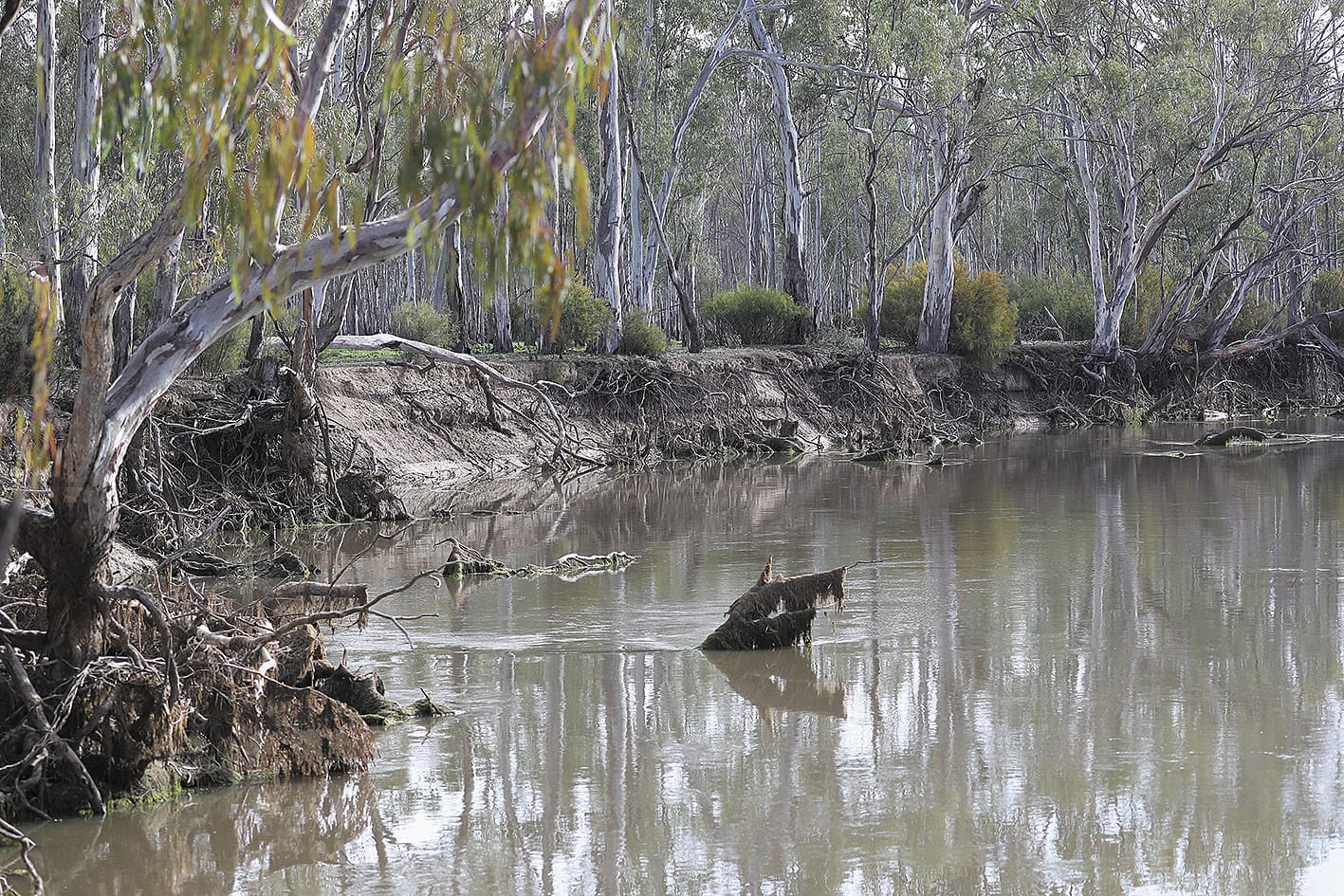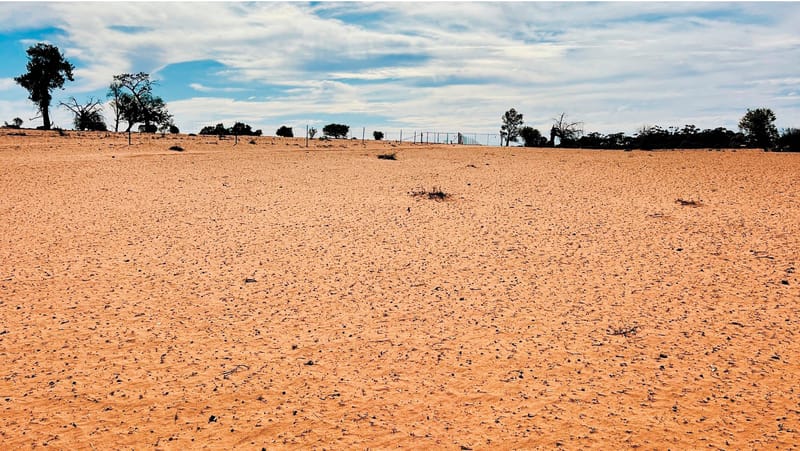Silly As A Wheel
Guess what? There is another review and it relates to water! From the Productivity Commission. Federal Water Minister Keith Pitt was quoted in The Land Newspaper stating ‘In my view, communities are consulted out’ which is probably true. The community members are sick of reviews and talking...

Guess what? There is another review and it relates to water! From the Productivity Commission.
Federal Water Minister Keith Pitt was quoted in The Land Newspapers stating ‘In my view, communities are consulted out’ which is probably true. The community members are sick of reviews and talking about water. That’s because nothing changes. Well, I should not say nothing, the things the Government or the MDBA want changed changes, just not the little things like the 2004 National Water Initiative legislation, that all states and territories agreed to, you know the rules for water governance.
Little things like a water trading register, excerpts from the 2004 NWI agreement-
The Parties agree that water registers will be established in each State and Territory and will:
1. contain records of all water access entitlements in that jurisdiction, and trades of those entitlements, including their location;
.....
5. be publicly accessible, preferably over the internet, and include information such as the prices of trades and the identity of entitlement holders; and
Ok, maybe we don’t need to know if government officials and employees own and trade water while reshaping the Australian water landscape.
Why did the Federal Government spend $30,000,000 creating a water register as stated at Senate Estimate, to then drop it with no explanation?
What else is in the 16 YEAR OLD NWI agreement?
The Parties agree that water trading rules will be established consistent with the principles below.
2. All trades should be recorded on a water register (Schedule E refers).
3. Restrictions on extraction, diversion or use of water resulting from a trade can only be used to manage:
i) environmental impacts, including impacts on ecosystems that depend on underground water;
ii) hydrological, water quality and hydrogeological impacts;
iii) delivery constraints;
iv) impacts on geographical features (such as river and aquifer integrity); or
v) features of major indigenous, cultural heritage or spiritual significance.
That is funny, I am pretty sure that just mentioned environmental impacts and delivery constraints. Have you seen the Goulburn River damage? Or the Murray River damage from basically Yarrawonga to Swan Hill or maybe the Edward System? Sorry I forgot they are the unmentionables we gloss over for an on-time, and in-full, plan. Here is the intervalley trade data for 17-18 (see image), note the Goulburn Valley intervalley trade. Why does this matter? This is water that once resided in a geographical location that is the Goulburn Valley and now gets traded down the river on top of normal river operations, environmental flows, South Australia allocation etc. Hello erosion and loss of habitats! But remember not environmental impacts, impacting ecosystems, river integrity or delivery constraints. To be fair, those problems won’t exist much longer thanks to hydraulic land clearing aka erosion…
Surely that is all they missed in the 16 years of this agreement that all those states and territories signed up to?
7. Where necessary, water authorities will facilitate trade by specifying trading zones and providing related information such as the exchange rates to be applied to trades in water allocations to:
i)adjust for the effects of the transfer on hydrology or supply security (transmission losses) or reliability; and
ii)reflect transfers between different classes of water sources, unregulated streams, regulated streams, supplemented streams, groundwater systems and licensed runoff harvesting dams.
8.Water trading zones, including groundwater trading zones, should be defined in terms of the ability to change the point of extraction of the water from one place to another, and protection of the environment. The volume of delivery losses in supplemented systems that provide opportunistic environmental flows will be estimated and taken into account when determining the maximum volume of water that may be traded out of a trading zone.
Adjust for side effects of transmission losses? Or trading zones? What are transmission losses you ask? Well, imagine you carve a dirt ditch across your back yard. The ditch represents the river, grab a 20 litre bucket of water. This bucket represents the seller of temporary water in the geographical location upstream. Tip the water into the trench and measure how much is left at the end of the trench, where the buyer is located downstream. The difference in volume is transmission losses. If like the 2004 NWI, you ignore transmission losses and the explosion of water trading, transmission losses are just tallied up to water to run the river. That’s ok isn’t it?
Hell no, water to run the river is accounted for before allocations to people who own a water right! It impacts their property right! If a foreign owned almond farm buys huge volumes of water, or the Government wants to trade its water from hundreds of kilometres upstream, they don’t pay the losses. People like young dairy farmers Mick and Tara Searle pay for it. To quote our pollies “Pass the Pub Test”? Pretty sure if you did that sort of crap in a pub in the real world you would get a smack in the mouth…
OK I know I’m being ‘critical’ but maybe that’s because I read the last Productivity Commission report because the Productivity Commission is the body that looks at the progress of all Australian governments in achieving the objectives, outcomes and timelines of reform directions proposed in the 2004 Intergovernmental Agreement on a National Water Initiative (NWI).
Here is the actual brief-
Under the Water Act 2007 (Cth), the Commission is required to undertake three-yearly inquiries into the progress of reform in Australia’s water resources sector. This is the second such inquiry. It will look at the progress of all Australian governments in achieving the objectives, outcomes and timelines of reform directions proposed in the 2004 Intergovernmental Agreement on a National Water Initiative (NWI).
So, are they the ones who ensure the 2004 NWI is being followed? Nothing to see here then, hope it doesn’t get worse.

Quotes from their 2018 report:
Water trading is one of the major successes of national water reform. Water markets have delivered large benefits to the community and made the irrigation sector more prosperous and resilient. While water trading can have mixed effects on regional economies as production moves to different locations, this has to be considered against the counterfactual of no water trading and the effects of other influences, such as depressed prices for a particular commodity.
The establishment of water markets, separate from land, has allowed for the one off trade of water within a season (allocation trade) and the permanent transfer of water rights (entitlement trade). In both cases water trading benefits the community by allowing water to move to higher value uses and by creating an incentive for irrigators (and other entitlement holders) to use water more efficiently.
So, let me get this straight: Is water trading is a good thing? Pitting Aussie dairy farmers who can afford to purchase water to feed their cows at $200 per megalitre against foreign owned almond farms who can afford $1,000 per megalitre is a win? Ok not sure what pub they drink at. There’s that smack in the mouth again.
Maybe the dairy farmers should be protected by Schedule 3 subsection e)?
Schedule 3—Basin water market and trading objectives and principles
3 Basin water market and trading objectives
The objectives of the water market and trading arrangements for the Murray Darling Basin are:
(d) to recognise and protect the needs of the environment; and
(e) to provide appropriate protection of third party interests.
There are actually 24 pages on the benefits of water trading.
Even our peak bodies get in on the action. The NSW Irrigators’ Council contended:
This priority [to enable water to be traded to its highest value use] is … being well implemented, and we can report that water trading has become a central feature of irrigated agriculture in Inland NSW. (sub. 42, p. 3)
The Wentworth Group stated:
The maturation of water markets in the Murray–Darling Basin is one of the success stories of the National Water Initiative reforms. (sub. 40, p. 3)
Murray Irrigation’s view was:
The water market – and the value of water – has led to the improved efficiencies and diversity of commodities now being grown across the Basin. This has had far more of an impact on efficiency than any other Government policy or water reform. (sub. 16, p. 6)
Even the ACCC, just before it was asked to do a review of water trading is featured stating:
Foreign ownership of water
Concerns about foreign ownership of water have been raised in various forums. For example, when the ACCC (2010b) was developing advice on water trading rules it heard from a number of stakeholders that felt that there was potential for foreign ownership of water to have detrimental effects on commodity markets. More recently, the Senate Select Committee on the Murray-Darling Basin Plan (2016, p. 94) ‘heard concerns from witnesses regarding the potential for foreign ownership of water and the implications this may have for the water market’.
The ACCC (2010b) considered that in light of existing restrictions on foreign investment in Australian assets (in particular, Foreign Investment Review Board provisions under the Foreign Acquisitions and Takeovers Act 1975 (Cwlth)) there was not sufficient justification for additional restrictions on foreign ownership of water. The ACCC pointed out that there was little benefit in simply holding water, and that the benefit largely derives from use, which must occur in Australia. It also argued that it was not clear that foreign owners of water would be more likely than local owners to try to control production, and that there were general laws that addressed anti-competitive behaviour. The Commission agrees with the ACCC’s analysis and considers that it remains relevant.
I could go on. There is a whole section on metering which is very relevant to floodplain harvesting and affects the Murray system significantly. That can wait, your eyes are probably glazing over and my blood pressure just reached a height amongst the heavens.
I’ll leave you with two last points from the report:
Allowing trade in water between the irrigation and urban sectors provides benefits for irrigators, urban water users and the community more broadly.
Households are frequently willing to pay between 10 and 100 times more for water than the price irrigators are willing to accept, meaning that the gains from trade for irrigators and households can be large (even after allowing for pumping, water treatment and other marginal costs for urban delivery).
Sorry dairy farmers, you may soon have to compete with city dwellers wanting to fill their lap pool?
A fitting summary of the debacle is that Prime Minister Scott Morrison was the Minister responsible for the 2018 report, when he was then treasurer. Not sure why I’m so ‘critical... Must be the pub I drink at?






